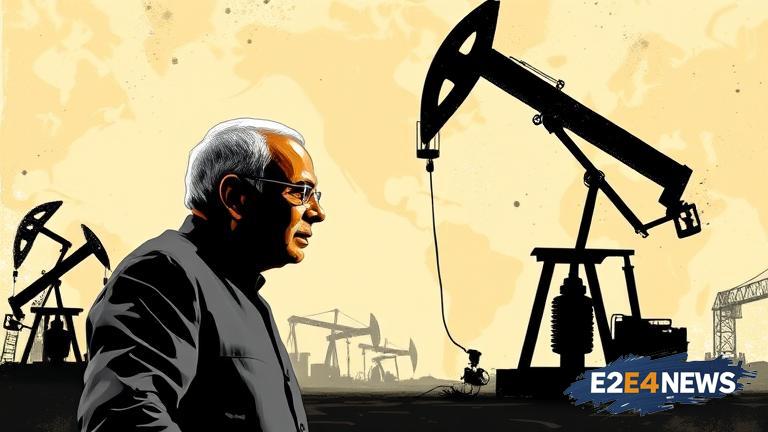India has recently expressed its discontent with the trade practices of several major economies, including the European Union, the United States, and Russia. The country’s main concern revolves around the issue of oil tariffs, which it believes are being imposed unfairly. India’s Minister of Commerce and Industry has publicly stated that these nations are engaging in double standards when it comes to trade, applying different rules to themselves than they do to other countries. This criticism comes at a time when the global trade landscape is becoming increasingly complex, with protectionist policies on the rise. The US, under the presidency of Donald Trump, has been particularly aggressive in its trade policies, imposing tariffs on a wide range of goods from various countries, including India. The EU, too, has been accused of protectionism, with its common agricultural policy being cited as an example of unfair trade practices. Russia, on the other hand, has been involved in a number of trade disputes with other nations, including the US and Ukraine. India’s accusations of double standards are not unfounded, as many of these countries have indeed been known to apply different rules to themselves than they do to others. For instance, the US has imposed tariffs on Indian steel and aluminum, citing national security concerns, while at the same time providing subsidies to its own farmers. Similarly, the EU has been accused of imposing unfair tariffs on Indian goods, such as textiles and pharmaceuticals. Russia, meanwhile, has been involved in a number of trade disputes with its neighbors, including Ukraine and Belarus. India’s demand for a level playing field is not unreasonable, given the country’s growing importance in the global economy. With a population of over 1.3 billion people, India is a significant market for many countries, and its economic growth has the potential to lift millions of people out of poverty. However, the country’s trade relationships with other nations are often marked by tensions and disputes, particularly when it comes to issues like tariffs and subsidies. The Indian government has been actively seeking to address these issues, both through bilateral negotiations and through multilateral forums like the World Trade Organization. Despite the challenges, India remains committed to free trade and is seeking to increase its exports to other countries. The country has set a target of increasing its exports to $2 trillion by 2025, and is working to improve its trade infrastructure and simplify its regulatory procedures. However, the global trade environment remains uncertain, and India will need to navigate a complex web of trade agreements and disputes in order to achieve its goals. The country’s relations with the US, EU, and Russia will be particularly important in this regard, as these nations are among India’s largest trading partners. In recent years, India has sought to diversify its trade relationships, increasing its engagement with other regions like Southeast Asia and Africa. The country has also been actively pursuing regional trade agreements, such as the Regional Comprehensive Economic Partnership (RCEP), which aims to create a free trade area among 16 countries in the Asia-Pacific region. Despite the progress made so far, India’s trade relationships with other nations remain a work in progress, and the country will need to continue to navigate the complexities of global trade in order to achieve its economic goals. The issue of oil tariffs is particularly significant for India, as the country is heavily dependent on imports to meet its energy needs. The Indian government has been seeking to reduce its dependence on imported oil, through measures like increasing domestic production and promoting the use of renewable energy. However, the country still has a long way to go in terms of achieving energy security, and the issue of oil tariffs remains a major concern. In conclusion, India’s accusations of double standards in global trade are not unfounded, and the country has a legitimate right to demand a level playing field. The issue of oil tariffs is particularly significant, given India’s heavy dependence on imported oil. As the global trade landscape continues to evolve, India will need to navigate a complex web of trade agreements and disputes in order to achieve its economic goals.





